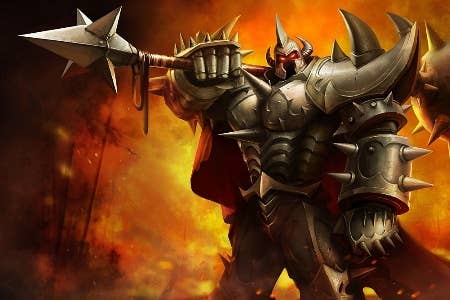Content is king: the growing pains of free-to-play
Riot Games, 22 Cans, Spicy Horse, EA and Cryptic Studios on the troubled evolution of the model that could reinvent the games industry
Right now, every eye in the industry is trained on THQ, a company that seems to be nearing the end of a long, slow period of decline. Should the worst happen, THQ will be the most prominent casualty since the industry's grand swing towards online digital platforms began. Midway and Atari spring to mind, but neither company was trading at $36 a share in 2007. With THQ, the journey from major player to life support took less than a console generation.
All of which makes this article grimly appropriate. The market forces that invalidated so much that is core to a business like THQ also allowed the spread of freemium pricing models. They demand a vast number of connected devices, fast and flexible production tools, sophisticated online payment services, and myriad other things that simply didn't exist when THQ was ascendant. In the new industry, games are no longer worth $60 on a choice of four platforms; they are worth whatever the consumer is willing or able to spend, and available just about everywhere. It is a fundamental shift in the way the industry as a whole operates, and free-to-play is an essential component.
"In a lot of free-to-play games I've felt dirty about spending money: I feel like I cheated, I feel like I'm impatient, I feel like I'm bored"
Peter Molyneux, 22 Cans
At this point, the popularity and relevance of free-to-play has been proven beyond question - by CityVille, by League of Legends, by droves of online games implementing micro-transactions - and yet debate around the subject rages on. There are impassioned critics of free-to-play in every corner of the industry, their objections fuelled by varying degrees of self-interest. But the clamour they create is fading. The naysayers are dying out.
“For a developer, monetisation is still slightly disgusting to talk about,” says Peter Molyneux, the veteran designer who gave up a career at the pinnacle of console development to explore free-to-play with his indie start-up, 22 Cans. “You're not supposed to do this for money. But, actually, if you all pin us down and put a bright light in our eyes, feed us truth drugs, I bet all of us would be. Well, you need money, let's be honest.”
As early as last year, Molyneux would have counted himself among free-to-play's doubters. Indeed, he still isn't a full convert: as much as anything else, 22 Cans' first release, Curiosity, is an attempt to dig into the business model and better understand its influence on player motivations. The idea is powerful, he admits, but the long-running discussion around it is also merited - necessary, even.
“The thing that we're disgusted about, in the indie world, is greed. I've got this big thing about free-to-play at the moment: in a lot of freemium games I've played it's obvious to me that they just want to wring me for everything I've got, in the shortest possible time. That's all. They want to squeeze me into ten hours of gameplay, get everything out of me, spit me out and that's it. And that's wrong.
“In a lot of free-to-play games I've felt dirty about spending money: I feel like I cheated, I feel like I'm impatient, I feel like I'm bored.”
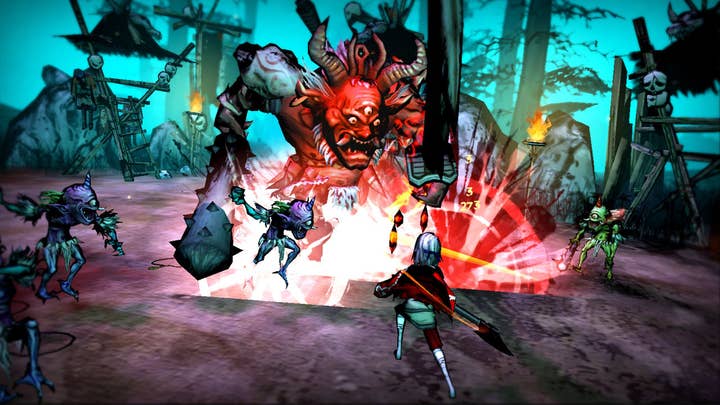
For Molyneux, this reaction shouldn't be taken as evidence of inherent corruption; rather, it's a side-effect of being a consumer in the early stages of what will be a long, iterative process. The most mercenary free-to-play games - where player satisfaction is eternally under pressure from dwindling reserves of 'energy' - effectively put a tax on fun. You need only look to Zynga's recent fortunes to see how brittle that sort of success can be.
If free-to-play is at the start of its life, then this can be seen as growing pains. American McGee, founder of the Shanghai-based development studio Spicy Horse, has been living and working in the world's biggest free-to-play market for more than six-years. Spicy Horse's three most recent projects - Big Head Bash, Crazy Fairies and the forthcoming Akaneiro: Demon Hunters - all use the freemium model, and for McGee there's no reason to look back. The future is digital, and the elasticity that freemium offers will be to everyone's benefit.
“The question I have is, what is a retail store? You're free to walk in, to browse, to try the items out or put them on, and if you so wish you can purchase them and walk back out,” he says. “I think that's a natural thing to start seeing in online games, as they become more like real life. Anybody resisting that should look up from their computer and realise that this is the reality that we live in.”
"That's the irony with Western gamers: they have become so numb to the part that they play in their own captivity inside the console model"
American McGee, Spicy Horse
In the West, much of the last 15 years of gaming has been prescribed by a handful of platform-holders, publishers and retailers, struggling to control and create as much shelf-space as possible. McGee compares the console manufacturers to the East India Company's iron-grip on global trade several centuries ago - “that's all a PlayStation 3 or Xbox 360 really is” - and is clearly baffled at consumer suspicion around free games. In China, free-to-play is a bedrock of the entire gaming culture.
“That's the irony with Western gamers,” McGee says. “They become so numb to the part that they play in their own captivity inside this model, and when a popular web game or a mobile game with in-app purchases comes along their initial reaction is resistance, even though - when they to really look at it - they'd quickly realise that this is a better deal for them and for the people making games for them.”
Of course, spending so much time addressing the criticisms of free-to-play - however valid - misrepresents the issue. In every important sense the games industry has already embraced the model: Western developers and publishers of all sizes and shapes are embarking on free-to-play projects, or modifying existing projects to meet the model's requirements. There's still money on the table, and they want their share as quickly as possible.
For some companies, this period won't end happily. Sean Decker has been vice president of EA's Play4Free label for a little over two years, but he started working in free-to-play with Battlefield Heroes in 2008. For a major Western publisher that's extremely early, and Decker believes that EA's years of constant investment in this will give it a competitive edge in the future. Perhaps more importantly, EA has taken the necessary time to refine the systems and processes required to create and operate successful free-to-play games - a luxury that many companies can't, or won't, afford.
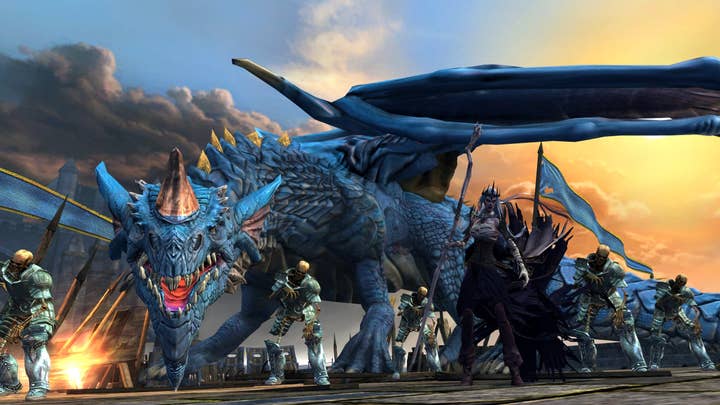
“For every one Amazon or eBay there were how many failures?” Decker asks. “There's always this kind of rush towards things, and then the major players stick out in the end. EA is going to be one of those players. The good thing about so many companies moving into the free-to-play space is that it's great for the players: the quality of graphics are going up, the quality of the gameplay is going up.”
The same point is made by Craig Zinkievich, COO of Cryptic Studios, which was acquired by the Chinese online gaming company Perfect World in 2011. At that point, Cryptic had recently launched Champions Online's free-to-play version, and it was in the process of converting Star Trek Online from a subscription-based model. Without Perfect World's experience, accumulated over many successful years in China, Zinkievich believes Cryptic could have made unnecessary and damaging mistakes.
“We're now competing on quality,” he says. “A new business model, yes, but, as with boxed products, the need for an awesome AAA game.
“I think there will definitely be failures within the next 12 to 24 months. Many who are entering the market right now are doing it as almost a money-grab: rapidly converting to it, or, 'Okay, how do we up our revenue?' Those people are going to wonder why all the money didn't just come to them. It's just not as easy as it used to be.
"I think there will definitely be failures within the next 12 to 24 months. Many who are entering the market right now are doing it as almost a money-grab"
Craig Zinkievich, Cryptic Studios
“Time to market is always crucial,” adds Gabriel Hacker, general manager of Perfect World Europe. “Perfect World was lucky, in a manner of speaking, to be in the right spot with the right products at the right time. We built our success from there.
“Back in the day, if you had this business model attached to your product you had a very high chance of success. But now everybody is jumping on the free-to-play wagon, and so the level of quality has dramatically increased. Our games need to fulfil the specifications of a AAA MMO, and it doesn't matter what business model we're using. We're competing for the consumer's time, not the money.”
Cryptic's next game is Neverwinter, a free-to-play MMO with lavish production values that easily bears comparison to any subscription-based game. For many consumers, however, the graphics aren't the problem. Even now, with games like League of Legends and Tribes: Ascend testing the belief that free-to-play games are inevitably compromised by the need to sell in-game items, there is a distinct lack of variety in the experiences the freemium model supports: they tend to be multiplayer RPGs, shooters, strategy or racing games; they tend to be set in persistent online worlds, often with a strong focus on PvP competition. When long-standing gamers hear about a future defined by free-to-play, they imagine a future without Dishonored, Uncharted, or even Mass Effect.
According to American McGee - and ngmoco's Ben Cousins and Boss Alien's Jason Avent, for that matter - this view is misguided. As with transparently greedy free-to-play games, the narrow range of available experiences is simply another symptom of the model's early development, and one that could be addressed tomorrow if a company had the will to do so.
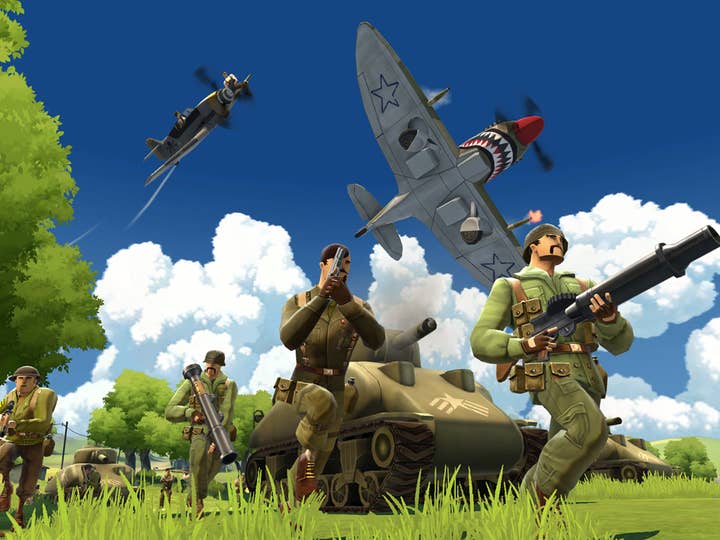
“A lot of games that we like and enjoy today could very easily be free-to-play: Fallout 3 or Skyrim could be, the Grand Theft Auto series could be,” he says. “Any game in which there is a world, and you're going around acquiring items and interfacing with shops, any of those could work under a free-to-play model... I suspect that if you'd launched Fallout 3 as a free-to-play title rather than paying $60 for the disc it would have had equal or greater success.”
Riot Games' Brandon Beck sees the matter differently. As a co-founder of the company that created League of Legends, Beck is at the top of the West's biggest free-to-play success story, and perhaps the most compelling example of a free game that rivals the experience of the very best $60 AAA products. However, he stops short of proclaiming a free-to-play Uncharted as inevitable - it's an easy thing to say, but actually making it work would be a daunting challenge, with higher upfront costs than the typical free-to-play game.
At present, there are no examples of a AAA, narrative-driven, cinematic action game developed and sustained using a freemium model. And reaching the point where that's possible, Beck argues, will take high-risk, costly experimentation, not to mention the full support of the console manufacturers. Frankly, most companies seem more than happy to just make another MMORPG or deathmatch shooter.
"I don't think the industry has figured out the right free models for many types of games. A rush into free-to-play may limit the kinds of content available to players"
Brandon Beck, Riot Games
“I don't think the industry has figured out the right free models for many types of games - even your standard console platformer - so a rush into free-to-play may end up limiting the kinds of content choices that are available to players,” he says. “That would be a travesty, because we all want to see rich, linear eight-hour experiences continue, as well as many other kinds of games that don't fit into the conventional free-to-play box.
“We may be in for an over-correction; too many companies are going to shift into this model thinking that it's the winning formula, and end up getting distracted from what really matters.”
What really matters, then, is good products; the question is whether that means the same thing for a free-to-play game as it does for a $60 retail game. Patrick Söderlund, executive vice president of EA's Games label, believes it does, to the point where he has stopped talking to his teams about freemium.
“It's just another business model, and ultimately what you need to do is make a great game,” he says. “Without that, it doesn't matter whether it's free-to-play, traditional retail, mobile or tablet - that's proven. Five years ago, if you went that route you'd get enough attention for it to be valid, for a while, but today that doesn't work. You have to make a great game in the same way you would on a PlayStation or an Xbox, or it won't be valuable.”
“It will absolutely be a significant portion of what we [EA] do, but there's too much focus around it right now. To me, it's not that hard: the need for great content is always going to be there, and EA will be there too... Content will always be king.”
The notion that micro-transactions needn't alter a game's design is a common idea among free-to-play developers, but it may be more aspirational than realistic. The fact is that what makes a “great” free-to-play game is necessarily different to its conventional retail counterpart, and that difference is inextricably tied to the way users pay for the experience. League of Legends is a perfect example of this: the payment structure allows its players to carve a unique path from hundreds of potential alternatives; to try it all would be prohibitively expensive, so players specialise, attain mastery and form groups more organically than they would with a single $60 serving. League of Legends is a great game, but without micro-transactions it would be a different and inferior experience.
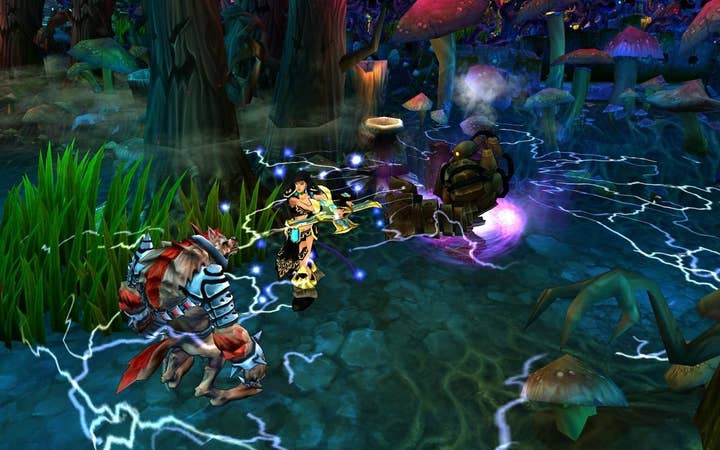
For Sean Decker, there are a number of significant differences in what constitutes a good free-to-play experience that ultimately make them more difficult to create. In a world of seemingly infinite choice, a console developer's main job is to justify the $60 upfront cost for its game. The goal is to give the consumer confidence that this effectively an unknown quantity will give them value for their money. Ultimately, this has led to packages of content so exhaustive and generous it borders on the absurd - Assassin's Creed 3, for example, or Halo 4.
“At our end, the difficult thing to overcome is the absence of investment on the part of the player,” says Decker. “It's free. When you go to the movies and you've bought a ticket, if it's a terrible movie you don't walk out in the first five minutes. You might give it an hour, and it's the same thing with a video game. You've invested in it, so you'll give it a shot.
“With free-to-play, within 10 minutes you might jump to something else; it's like switching the channel on the TV. And then we need to keep them for a very, very long time... The people who can make experiences that do that are going to win.”
This is what 22 Cans is trying to achieve with Curiosity: an experience that will intrigue players from first contact, and provide enough hooks to keep them returning and investing in its eventual outcome - that world changing secret at the centre of the cube. In Molyneux's opinion, a truly effective free-to-play experience can't be achieved by approaching the economics and the design as separate problems. The dollars and cents being spent on your game can be useful as more than just revenue; they are a form of interaction, and a valuable source of direct feedback. The free-to-play model is only as interesting as the incentives offered by the developer.
"Ultimately, what you need to do is make a great game. Without that, it doesn't matter whether it's free-to-play, traditional retail, mobile or tablet"
Patrick Söderlund, EA Games
“Money is an important part of everyone's life, and you've got to think of the emotional reason why people spend money,” Molyneux says. “Until now it's just been about getting people excited; excited enough to spend $60 on something on a shelf. That's withering away now, and we've got to think of other ways of doing it.
“The first approach, sure enough, is to use impatience. Humans are impatient beings, but is that the only emotion we want to pull at? No. But curiosity is one of many ideas that we haven't really experimented with. The idea of [financial] investment, the idea of group challenges, 'I'll put a bit in and you put a bit in and you put a bit in and we'll get all this.' All of those things we have yet to explore.”
There have been too many free-to-play success stories to argue that the model's potential has yet to be fulfilled, but those investing in its future are working hard to shake off the taint left by the parasitic social games that so capably aided its growth. So far, free-to-play has been synonymous with their worst practices, allowing sceptics to make strong arguments that the model is inherently corrupt, even evil.
For Cryptic's Craig Zinkievich, we have already passed this moment in time. When the entire Western industry was struggling to replicate World of Warcraft's astonishing success with monthly subscriptions, it neglected to look East, where a more robust and accessible model already had the rapt attention of hundreds of millions of players. The truth is that gamers never really wanted subscriptions; that was just a riff on the high-cost of the traditional retail model, and never in the player's interests. But they do want to a more active role in deciding the cost of what they play, and that, ultimately, is what freemium is really about: not free games, exactly, but a more transparent marketplace where consumers knows exactly what they're buying, and can assess its value for themselves.
“At the same time it has become more 'evil' in the social market, what many free-to-play shooters and all the incoming free-to-play MMOs have done is actually get the core gaming audience more excited about free-to-play now than they would have been three or four years ago,” Zinkievich says. “It isn't as tarnished as it may seem.
“But subscription is dead. The Old Republic was the biggest possible swing for the fences. There is no longer any argument over whether that can be done. Free-to-play is the way of the future. It is the new world.”
